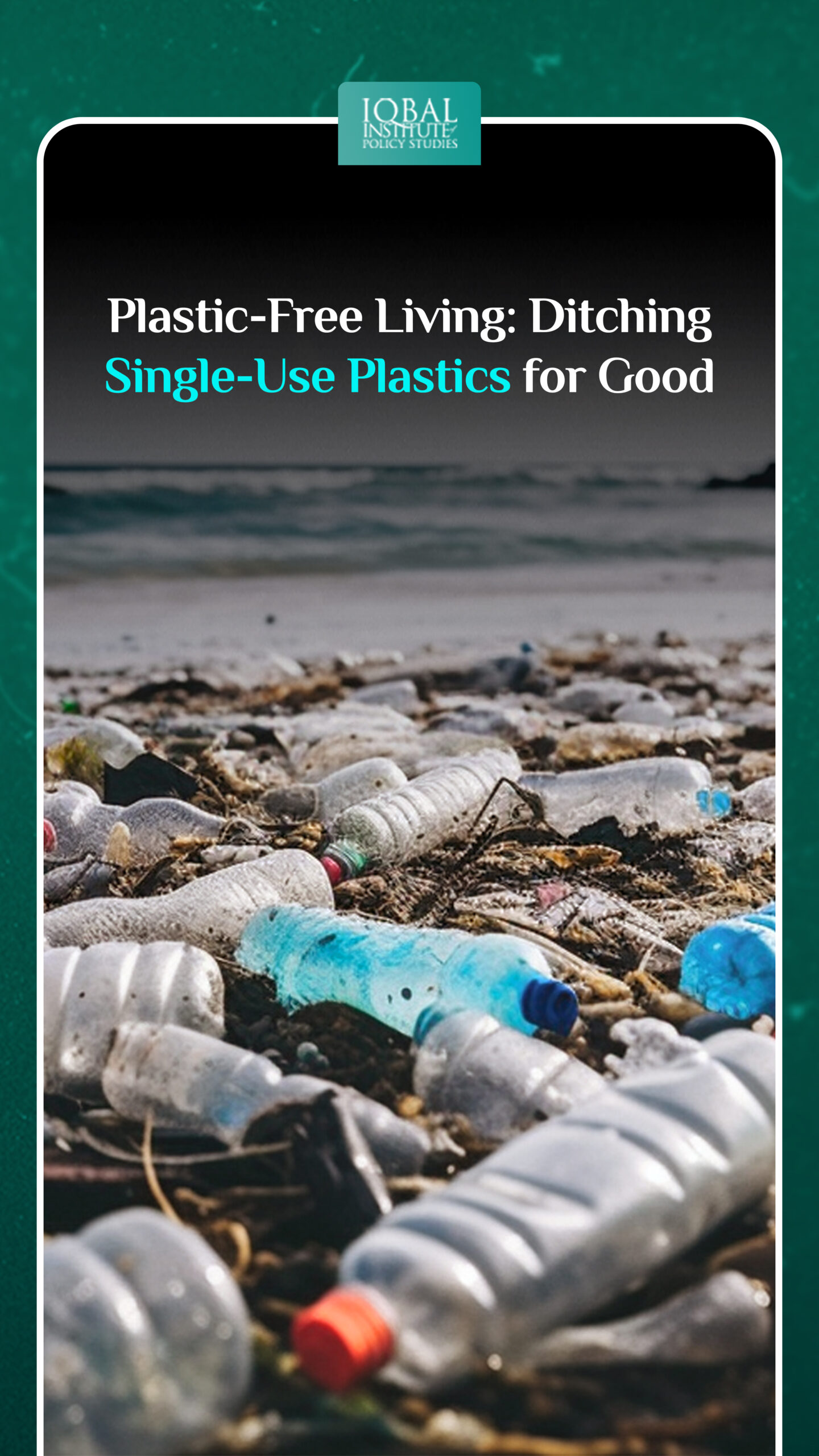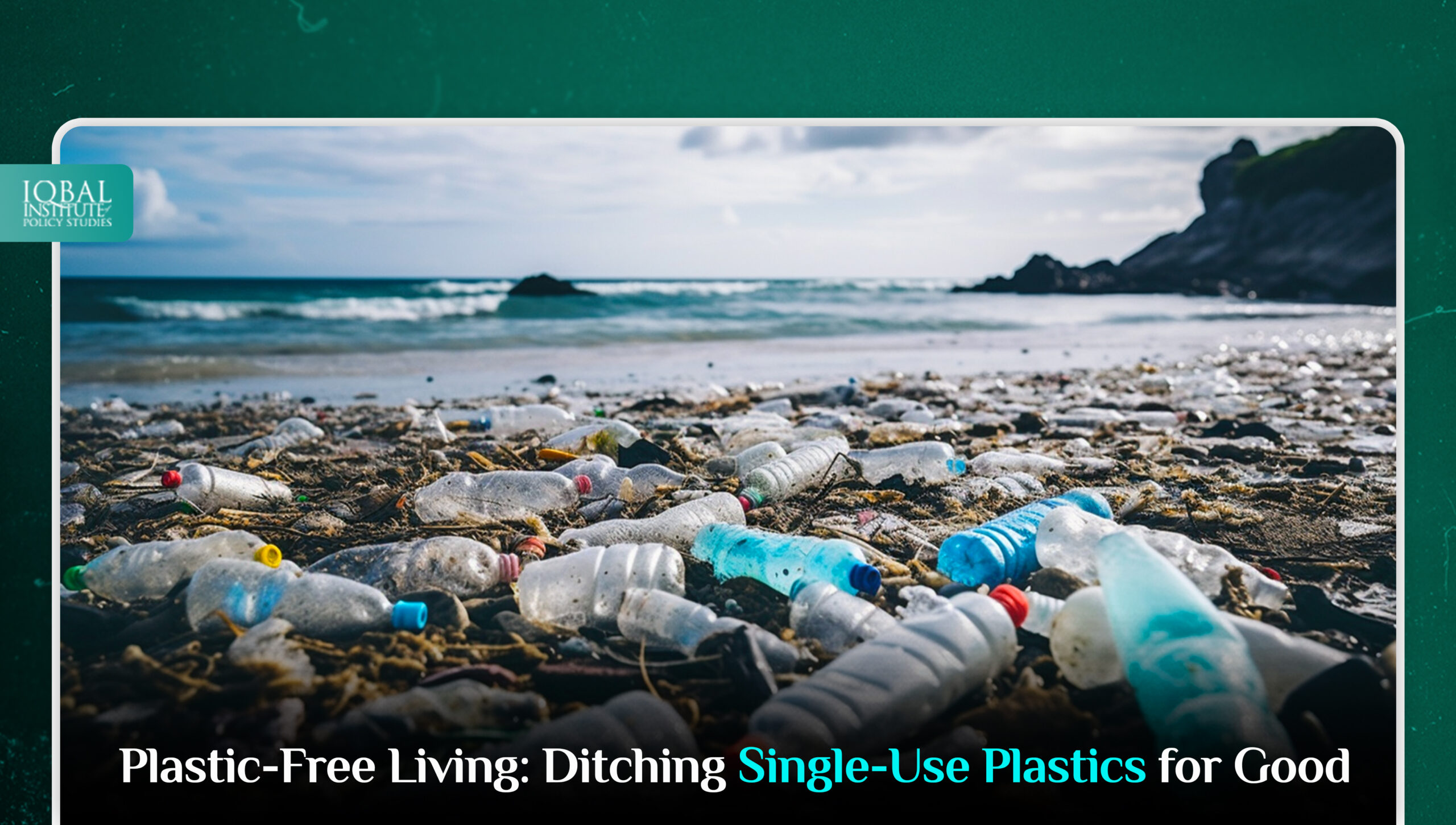In a world where convenience has often come at the cost of our environment, the pervasive presence of single-use plastics has become an urgent issue that demands our attention. Plastic, once hailed as a revolutionary material, has now permeated nearly every aspect of modern life, from our morning coffee routine to the groceries we carry home. However, the convenience it offers is overshadowed by the devastating impact it has on our planet. As plastic waste accumulates in landfills and pollutes our oceans, the need for a plastic-free revolution has never been more pressing. The journey toward plastic-free living is not just a personal choice; it’s a conscious commitment to preserving the delicate balance of our ecosystems and securing a cleaner, healthier future for generations to come.
Understanding the Impact of Single-Use Plastics
The impact of single-use plastics on our planet is staggering and far-reaching. These seemingly convenient disposables come with a heavy environmental price tag. Annually, millions of metric tons of plastic waste are generated, and a significant portion of it ends up in our oceans and landfills. Marine ecosystems bear the brunt of this burden, with marine life often mistaking plastic debris for food or becoming entangled in it. The chemical composition of plastics also makes them slow to degrade, leading to long-lasting pollution that persists for generations. As plastics break down into smaller particles, they enter the food chain, potentially posing risks to human health through the consumption of contaminated seafood. Beyond marine environments, single-use plastics contribute to greenhouse gas emissions during their production and disposal phases, further exacerbating climate change. The extraction of fossil fuels for plastic production and the energy-intensive processes involved release harmful pollutants into the atmosphere. Moreover, the visual blight of plastic litter on landscapes diminishes the natural beauty of our surroundings and impacts tourism and local economies.
Understanding the far-reaching consequences of single-use plastics prompts a call to action. It highlights the urgency of reducing plastic consumption, rethinking our dependency on disposables, and advocating for sustainable alternatives. By embracing reusable alternatives, supporting plastic-reduction policies, and raising awareness, we can collectively mitigate the devastating impact of single-use plastics. The journey toward a plastic-free world is not only an environmental imperative but also a shared responsibility to safeguard the delicate balance of our ecosystems and secure a cleaner, healthier planet for present and future generations.
Identifying the Common Single-Use Plastics
Everyday life is entangled with the subtle menace of common single-use plastics, insidiously infiltrating our routines until their environmental repercussions become painfully evident. These usual suspects encompass a range of seemingly innocuous items, such as the ubiquitous plastic bags that ferry our groceries, the transient and often redundant plastic straws that accompany our beverages, the fleeting convenience of disposable water bottles, and the fleeting utility of takeout containers that are here one meal and gone the next. Although their convenience is alluring, these commonplace plastics conceal a darker truth: their accumulation in landfills, their insidious spread throughout our oceans, and the grave threat they pose to delicate ecosystems and wildlife. To foster a greener tomorrow, it is imperative to discern these culprits and proactively curtail their prevalence in our lives. By astutely identifying and deliberately minimizing our reliance on these unassuming yet detrimental commodities, we collectively partake in the vital mission of diminishing our ecological footprint, championing a planet less encumbered by the burdens of disposable waste.
Benefits of Going Plastic-Free
Embracing a plastic-free lifestyle offers a multitude of profound benefits that extend far beyond personal convenience. By liberating ourselves from the clutches of single-use plastics, we embark on a journey toward a greener and healthier planet. One of the foremost advantages lies in the substantial reduction of plastic pollution, which wreaks havoc on ecosystems, endangering marine life and infiltrating food chains. Moreover, going plastic-free contributes to a significant decrease in our carbon footprint. The production and disposal of plastics are energy-intensive processes, releasing harmful greenhouse gases into the atmosphere and exacerbating climate change. Transitioning to sustainable alternatives not only reduces these emissions but also conserves precious natural resources.
Beyond environmental gains, a plastic-free lifestyle promotes personal well-being. By choosing reusable and non-toxic materials, we safeguard our health from the potential risks posed by plastic-related chemicals. This shift also fosters a heightened sense of mindfulness, as we become more conscious of our consumption habits and make deliberate choices to align with our values. Furthermore, supporting businesses that prioritize sustainable practices encourages market shifts toward eco-friendly products, triggering a positive domino effect. Ultimately, the benefits of going plastic-free reverberate across ecosystems, communities, and individual lives, presenting an opportunity for us to be conscientious stewards of the planet while enjoying a more fulfilling and responsible way of living.
Practical Tips for Embracing a Plastic-Free Lifestyle
Transitioning to a plastic-free lifestyle may seem like a daunting endeavor, but practical and achievable steps can pave the way for a smoother journey. Begin by starting small and setting realistic goals, such as replacing single-use plastic bags with reusable ones or opting for a stainless steel water bottle instead of disposable plastic bottles. Gradually incorporate homemade products into your routine, like DIY cleaning solutions and personal care items, reducing reliance on plastic-packaged alternatives. Embrace the power of reusables – from utensils and containers to cloth bags and beeswax wraps – to replace their disposable counterparts. When shopping, choose products with minimal or plastic-free packaging, supporting businesses committed to sustainability. By taking these pragmatic steps, you not only reduce your plastic footprint but also inspire positive change, demonstrating that a plastic-free lifestyle is within reach for anyone willing to embark on this transformative journey.
Overcoming Challenges and Mindset Shift
As one embarks on their plastic-free journey, it’s important to acknowledge and navigate the challenges that may arise, both external and internal. Society’s pervasive convenience-driven culture can make it challenging to resist the allure of single-use plastics. Overcoming this pressure involves a gradual mindset shift – viewing convenience through a lens of long-term impact rather than short-term ease. It’s crucial to stay resilient, reminding yourself of the environmental and health benefits of your choices. Adapting to potential inconveniences is part of the process; these temporary discomforts pale in comparison to the positive changes you’re making. Finding local plastic-free communities, sharing experiences, and seeking support can bolster your determination. Ultimately, embracing a plastic-free lifestyle is not just about rejecting plastics; it’s about embracing a mindful and sustainable way of living that reverberates positively across your life and the planet.
Staying Committed to a Plastic-Free Future
Staying committed to a plastic-free future demands continuous dedication and a steadfast belief in the positive impact of your choices. While the allure of convenience and the prevalence of plastics may tempt you to revert to old habits, reminding yourself of the broader purpose is crucial. Educate yourself about the environmental repercussions of plastic consumption, reinforcing your resolve with knowledge. Cultivating a support system can be immensely beneficial. Connect with like-minded individuals, join local eco-conscious groups, or engage in online communities to share challenges, triumphs, and innovative solutions. These connections provide encouragement and a sense of accountability.
Embrace a proactive approach by seeking out businesses that align with your values. Support those committed to reducing plastic usage or offering sustainable alternatives. Encourage your friends and family to join the movement, amplifying the impact and fostering a sense of collective responsibility. While setbacks may occur, view them as learning opportunities rather than reasons to abandon your commitment. Adapt and refine your strategies, celebrating each step towards a plastic-free lifestyle. As you witness the tangible effects of your choices, from decreased plastic waste to reduced environmental harm, your dedication will be reaffirmed.
Ultimately, staying committed to a plastic-free future involves a shift in perspective. It’s not just a personal endeavor; it’s a conscious choice to protect the planet and its inhabitants. By consistently making mindful choices and inspiring others through your example, you play an active role in shaping a cleaner, healthier, and more sustainable world for generations to come.
Conclusion
In a world increasingly burdened by plastic pollution, the pursuit of a plastic-free future emerges as a vital mission with far-reaching implications. As we’ve explored the myriad benefits, practical steps, and challenges of embracing a plastic-free lifestyle, it becomes evident that this endeavor is not merely a personal choice, but a collective responsibility. By forsaking the convenience of disposables and fostering a conscious connection to our consumption habits, we empower ourselves to become agents of positive change. Our commitment ripples outward, inspiring others and instigating a transformation in societal norms. As we stand at the precipice of a plastic-free future, armed with knowledge and guided by purpose, we can reshape our relationship with the environment and pave the way for a planet unburdened by the weight of single-use plastics. The journey may be challenging, but the rewards are immeasurable – a cleaner environment, healthier ecosystems, and a legacy of responsible stewardship for generations to come. Together, we possess the power to create a future where plastic pollution is but a distant memory, replaced by a landscape of sustainability, resilience, and shared commitment to a brighter tomorrow.
This article is written by Shahmeer Adnan. Shahmeer is a research analyst at the Iqbal Institute of Policy Studies (IIPS).



Leave a Reply